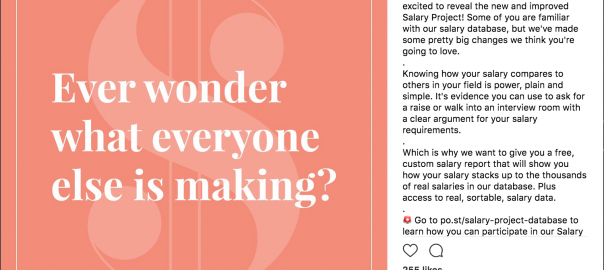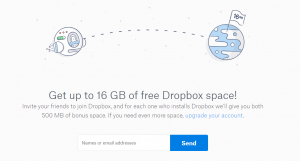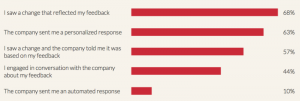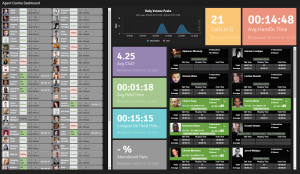— March 27, 2018
There are tons of things that you can accomplish with Instagram. But can you make money on Instagram?
You can market your brand or business. You can build and foster a community around your mission. You can engage your fans and followers and develop greater brand loyalty.
The list goes on and on. But, what about filling up your wallet? Can you use Instagram to actually earn some money?
Well, we’re diving into everything you need to know right here.
Can You Make Money on Instagram? Here’s the Short Answer
Let’s cut to the chase, shall we? Yes, you absolutely can make money on Instagram.
In fact, there are plenty of influencers who earn their entire living through Instagram alone. When they have millions of followers, brands are willing to pay pretty hefty sums to get their products featured there—meaning some influencers earn absolutely crazy amounts of money.
Shirley Braha, for example, earns her living off of the Instagram account Marnie The Dog, where she posts pictures of her rescue pup. With over two million followers on the account, Braha says that she earns way more from Instagram than she did when she worked full time.

But, rest assured, adorable dog photos aren’t the only way you can make money on Instagram. There are some other tactics that can lead to more digits in your bank account.
Making Money on Instagram: The Groundwork
If making money on Instagram was easy, everybody would be doing it, right?
It doesn’t need to be overwhelmingly difficult. However, there are some basic things you need to have in place in order to increase your chances of success with earning some money through Instagram.
So, what do you need? Here are the two key ingredients you’ll need in order to leverage Instagram to make some cash:
1. A Decent-Sized Following
Of course, you aren’t going to earn much if your Instagram photos aren’t actually reaching anyone. You need an audience.
But, notice that we said “decent-sized” here—and not massive.
We won’t deny that having a huge following can be a big help in terms of earning money on Instagram. In fact, influencers with seven million followers reportedly earn an average of $ 150,000 per sponsored post (pretty crazy, right?).
However, millions of followers isn’t a must-have prerequisite to earning money on Instagram. You need to have followers, but not necessarily millions of them.
So, how many? There’s no magic number here. The size of your following can vary pretty greatly depending on things like your niche and how engaged your followers are.
2. An Engaged Following
Speaking of engagement, that’s another thing that’s highly important for earning money on Instagram.
Think about it this way: In order to make money on Instagram, you’re likely going to need your followers to take action. Maybe you’re trying to inspire them to simply like your post—or, perhaps you need them to do something like buy a particular product.
That’s going to be tough to do if you have a giant audience of totally unengaged followers. As Braveen Kumar says in this blog post for Shopify, “100K fake followers won’t amount to much.”
Put simply, the more engaged your following is, the higher your chances of actually earning some coin through Instagram. Don’t forget that you can use Schedugr.am to schedule posts with your hashtags in the first comment — keeping your caption friendly and engaging while getting your post in front of the people who want to see it.
How to Make Money on Instagram: 4 Different Strategies
When you have that foundation laid, it’s time to move on to the next step: figuring out exactly how you’ll make money on Instagram.
Well, whether you’re an individual or a brand yourself, there are several different ways you can leverage the platform to earn some cash.
Like what? Let’s cover the details of four of the most common methods.
1. Do Sponsored Posts
Chances are, when you think of making money on Instagram, sponsored posts are the first thing to pop into your mind.
That’s not a surprise. This is the most popular method for earning money on Instagram, and one we’ve already touched on briefly in the introduction of this post.
So, what exactly is a sponsored post?
The concept is actually pretty simple: Brands identify relevant influencers within their niche, and then pay them a certain sum of money to share that product or include a mention of the brand within one of their Instagram posts.
This way, the brand widens its reach and gets exposed to a larger audience in a way that’s more authentic and trustworthy than a traditional advertisement—hence the reason that influencer marketing is so huge today.
In fact, influencer marketing is so effective and popular, that one survey by eMarketer found that 84% of marketers said that they’d launch an influencer marketing campaign within the next twelve months.
But, with the popularity of influencer marketing aside, let’s get back to the point: Because brands are so eager to work with influencers who can authentically promote their products and spread their message, sponsored Instagram posts have become a key way that many people earn money through the platform.
Here’s an example. Instagram influencer Arielle Shipe (who has just over 65,000 followers) posted this sponsored photo for the outdoor apparel and equipment brand, Marmot:

Of course, there’s no way for us to know exactly how much Shipe was compensated for this particular post—that varies depending on the brand and number of followers.
However, research indicates that the average sponsored post is compensated at a rate of $ 300—a figure that can increase greatly for accounts with tons of followers (as indicated by the $ 150,000 per post stat we referenced earlier).
Don’t Neglect the Rules
One more thing to be aware of if you decide to leverage sponsored posts as a way to earn money on Instagram: There are numerous rules and regulations that you should be aware of.
The biggest one? You must disclose when a post is paid or sponsored.
Instagram has a branded content tool that can automatically note when a post is sponsored (it’ll say “paid partnership with…”). But, for influencers who don’t use that tool, it’s necessary to include clear disclosures that the content is sponsored.
Most influencers do that through hashtags like #ad or #sponsored (#affiliate has been proven to not be quite obvious enough)—much like in the Marmot example above.
However, simply including that disclosure isn’t quite enough (and, this is something that many influencers still mess up). The FTC says that the disclosure of sponsored content needs to appear early in the caption—so that other users don’t have to click the “read more” button in order to see that disclosure.
In short, provided that you’re willing to follow the rules, sponsored posts on Instagram can be a great way to earn some coin.
2. Participate in Affiliate Marketing
It’s easy to get sponsored posts and affiliate marketing confused—especially since you’ll see both crop up pretty frequently on Instagram.
But, make no mistake, these two things are different.
While an influencer is directly paid simply for posting a sponsored post on Instagram, affiliate marketers earn a commision when something is purchased.
They’ll include an affiliate link that followers can use to buy the specific product they’re referencing. That link includes tracking so that when someone actually makes a purchase, the affiliate marketer gets a cut.
Here’s an example of an affiliate marketing post from The Applicious Teacher (who has a little over 7,600 Instagram followers).
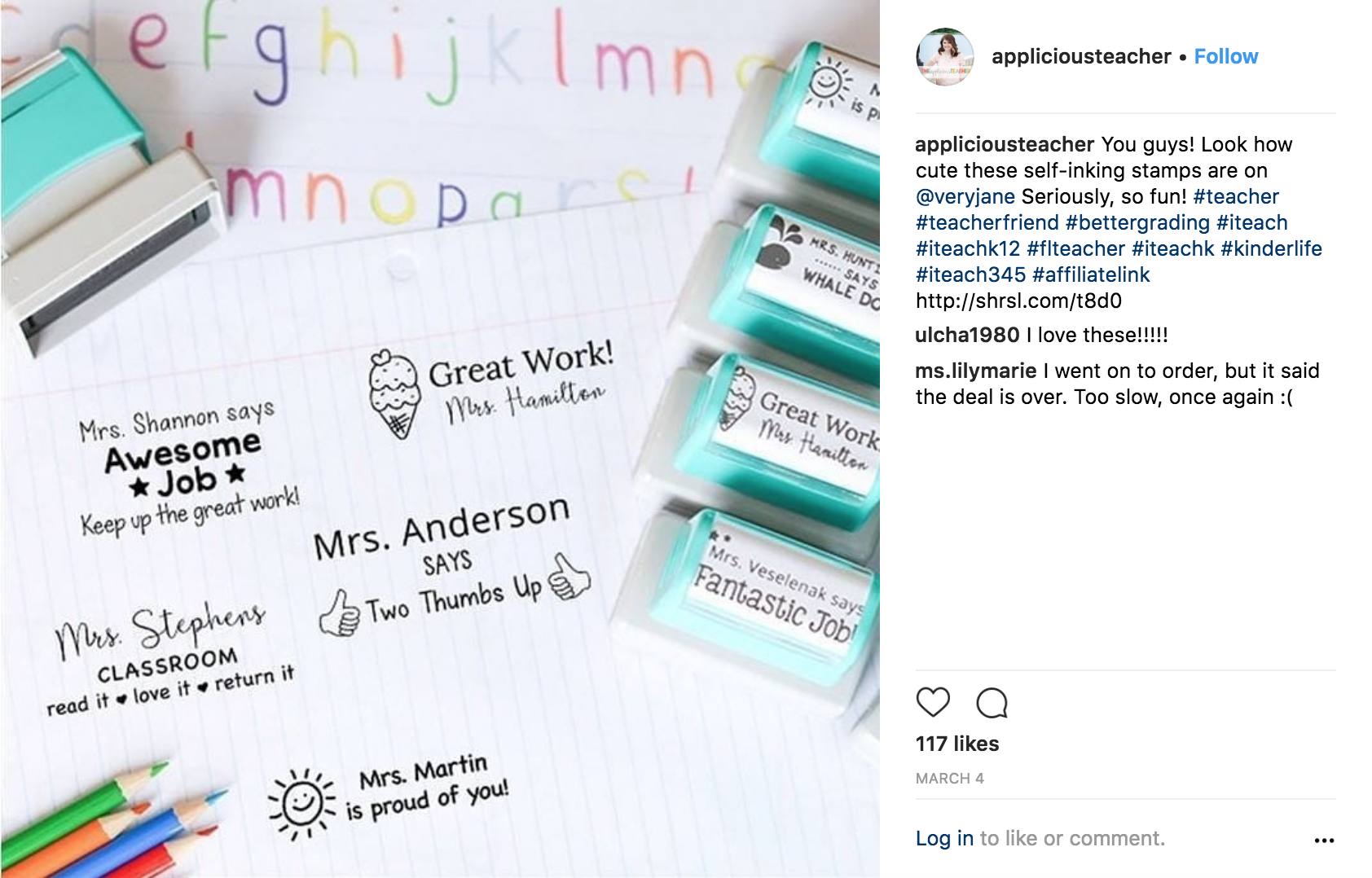
You can see that her photo caption includes an affiliate marketing link that users can copy and paste to make their purchase. She’s also disclosed that the link earns her a commission by using the hashtag #affiliatelink.
Again, if you’re going to leverage Instagram for affiliate marketing, you’ll need to make that disclosure clear to comply with the rules and regulations and to avoid any legal hot water.
Finding Affiliate Marketing Programs
Wondering where you can find affiliate programs to participate in? There are seemingly endless options out there.
To find the ones that are the best fit for you, start by thinking about your audience and your niche. What sort of content fits with your overall brand and the interests of your followers? If you largely talk about living a vegan lifestyle, for example, it won’t make sense for you to be an affiliate marketer for a bacon company.
To get some clarity, ask yourself questions like:
- Who is your audience?
- What type of content do you already post?
- What existing brands do you admire (they might have existing affiliate programs you could join)?
Going through those questions will help you zone in on affiliate programs that won’t just earn you money, but actually make sense with your overall brand and vibe.
Once you have some ideas, where should you look? There are tons of sites and platforms (like ClickBank, for example) where you can narrow by niche and find the best affiliate marketing opportunities for you.
But, Wait…
We know what you’re thinking now: What if you’re a brand yourself? As much as you’d love to earn some extra cash, you understandably don’t want to do so by promoting other brands and businesses.
Fortunately, affiliate marketing and sponsored posts aren’t the only ways to make money on Instagram. So, let’s explore two other methods you could use to fill your wallet—without pushing people away from your own brand.
3. Promote Your Expertise
Instagram is great for growing a community and marketing your brand, but it’s also awesome for establishing yourself as a thought leader in your space.
With digital products (you know, things like workbooks and online courses, for example) becoming increasingly popular, you can package your own expertise into these sorts of products and then promote them through Instagram.
Perhaps your brand is workflow software for freelancers and creative entrepreneurs. With that in mind, there are so many resources you could create that you could offer to your audience, including:
- Calendar, schedule, or to-do list templates
- Workbooks to help people plan their perfect workdays
- An ebook of productivity hacks and tips
That barely scratches the surface—there are so many things you could do.
You could offer these things for free to provide value to your followers and foster a relationship. Or, if you really have dollar signs in your eyes, you could use Instagram to push people to a landing page where they could purchase those resources.
Below is just one example of a brand that’s doing this. As part of their Salary Project, Career Contessa offered a free salary report and then used Instagram to lead people toward that resource:

They used their own knowledge and expertise to package together a product people wanted. While they chose to offer it for free (which is awesome!), you could also apply the same concept to paid products to increase your earnings.
4. Sell Your Products
Finally, in a similar vein, you can promote and sell your existing products through Instagram.
To do this successfully, you’ll need to have the existing capabilities (or, the willingness to set up the capabilities) to sell your products online—so that you can push interested customers there.
But, with that in place, Neil Patel explains in his post that the recipe is really quite simple:
- Open an online store
- Create an Instagram account that’s built around your niche
- Feature your products on your Instagram account
- Earn money
Seems pretty straightforward, right?
In terms of how to actually pedal your products? Admittedly, with a lack of clickable links in Instagram captions, that presents some challenges. However, there are some clever ways around it.
One way is to leverage Instagram stories to push people to your products. Provided you have a business profile with Instagram, you can add links to your stories—where users can swipe up on your story to get directly to the product you’re talking about.
Additionally, as Social Media Examiner explains, Instagram has currently rolled out shoppable posts to certain users—but, it’s expected to be introduced more broadly in the near future.
With shoppable posts, users can tap on an image to see the product details. From there, they can tap those details to be brought to a page where they can find out more and see a larger image of the product.
Then, they can choose to shop that product.
Again, this hasn’t been rolled out for all users quite yet. But, when it is, it’ll make it that much easier to earn money through your Instagram audience!
Should You Make Money on Instagram?
There’s no shortage of ways to make money on Instagram. Some are direct—such as sponsored posts and affiliate marketing—while others are more indirect.
When deciding whether or not earning money on Instagram is right for you, it’s smart to always return to your larger goals with the platform. Why did you join Instagram to begin with? Were you aiming to:
- Build brand awareness?
- Engage with your existing customers?
- Foster a sense of community?
- Increase sales?
Earning money through Instagram is a great bonus. But, it’s not right for everybody! So, make sure to return to your overarching strategy and see where Instagram fits in.
If you didn’t sent out with the intention of using Instagram to increase your bank account, you might be better off sticking with your original plan.
Over to You
Even if you choose not to go the route of earning money directly through Instagram, it’s important to recognize that it’s an important piece of the puzzle when it comes to increasing overall revenue for your brand.
All of those things we mentioned above—from increasing brand awareness to engaging with customers—ultimately help to contribute to your bottom line.
The more followers you have, the more people you can promote things to. The more you engage with them, the more brand loyalty they’ll have. The more loyalty they have, the more they’ll recommend you to others. The more they recommend you to others, the bigger your audience gets. You see how this cycle is going, right?
So, even if you don’t invest the elbow grease to earn money through those direct and obvious routes, we’re willing to be that Instagram is still a powerful platform that’s ultimately pushing your brand forward (and your income up!).
Digital & Social Articles on Business 2 Community
(44)
Report Post